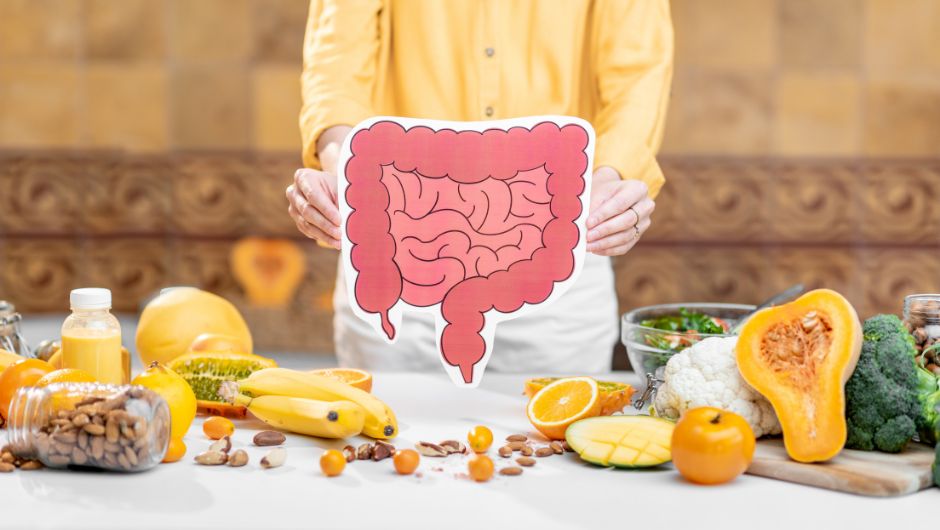Ayurvedic Guidelines For A Healthy Gut

Like the heart, brain, and gut health is also an important part of the human body. Staying healthy is important because it improves your body and mind. Unhealthy lifestyles and poor diets often lead to neglect of gut health. This leads to digestive problems.
Gut health plays an important role in the overall health of a body. An imbalance in the gut can cause many physical and psychological problems, not just in the gut. Over the years, increasingly negative changes in our diets and lifestyles have led to gut health problems worldwide.
What is Ayurveda?
Ayurveda is an ancient Indian medicine that dates back to 6000 BC. In Sanskrit, Ayur means “life” and Veda means “science” Ayurveda means “science of life”. True health is believed to be achieved through the natural integration of our body systems.
Gut health. Concept of Ayurveda
Only recently has modern medicine begun to understand the importance of gut health to the body’s overall well-being, and the ancient science of Ayurveda has based its medical teachings on this concept for thousands of years. He appreciates good food and calories.
Ayurveda believes that all movements and functions of the body are interconnected. According to this study, all diseases are caused by an imbalance of the three doshas, Vata, Pitta, and Kapha. They regulate the basic functions of the gastrointestinal tract, such as digestion, nutrient absorption and processing, metabolism, digestive tract balance (homeostasis), waste removal, and much more. The main seat of Vata dosha is the colon, where most of the gut bacteria live.
An imbalance of vata dosha affects the gut bacteria and causes severe abdominal pain, bloating, irritable bowel syndrome, indigestion, constipation, diarrhea’, and more. It can also affect the mind, mood, sleep, muscles, bones, immune system, and more.
Eat only when you are hungry.
Like really hungry—this is when your first meal is fully digested. Sometimes we think we’re starving, but it could just be dehydration. Be in tune with your body and re-discover how it feels to be really hungry.
Eat in a calm and comfortable place.
Sit down when you eat and use this opportunity to disconnect from distractions such as electronic devices. Put away your phone or tablet and focus on the present moment.
Eat the right quantity.
All humans are different, with different needs and gut sizes. Listen to your body and eat only when you feel satisfied.
Eat warm meals.
Ideally, it should be freshly cooked, but as long as you avoid anything coming out straight from the fridge, you’ll preserve your digestion power. This allows your digestion enzymes to work efficiently.
Eat quality food.
Make sure that your meal is juicy or a little oily, as this will facilitate digestion and improve nutrient absorption. Avoid foods that are dry.
Eat at a regular time.
Our digestive system works optimally when it operates on a regular schedule. This can promote efficient nutrient absorption and prevent digestive issues.
Be present when you eat.
Use all your five senses. Take time to appreciate the smell of your meal, the look of your plate, the texture of your food, the different flavors, and the sound that you make when you eat.
Don’t eat fast.
Eating slowly allows your body to properly break down food and aids in digestion. Don’t just swallow your food; take some time to chew it. Without proper chewing, the food doesn’t digest properly.
Ayurvedic food
Eating according to a dosha, especially the dominant dosha, helps improve the body’s balance and improves respiratory health and overall health and well-being.
Vata: inedible food
- Lots of dried fruit
- Dried vegetables such as leafy greens and cruciferous vegetables
- Most seeds and cereals
- Most are grains or legumes.
- Alcoholic beverages and caffeinated beverages
- White sugar
Pitta: Food that should not be eaten
- Lots of fruit, such as apples and citrus fruits; bananas
- Lots of pungent vegetables, such as roasted leafy greens, dried beets, olives, and raw onions
- Breads with yeast; corn
- Soy and miso
- Buttermilk, butter, and hard cheese
- Almost all seeds
- Alcoholic beverages and caffeinated beverages
- White sugar and molasses
Kapha: Food that should not be eaten
- Most sweet and sour fruits: avocado; coconut
- Dairy products such as butter. hard and soft cheeses; chocolate
- Like most meats, fish, and beef. buffalo meat. chicken; pork; salmon
- Almost all seeds
- Oils such as olive oil and peanut oil
- Salt
- Lots of sweeteners